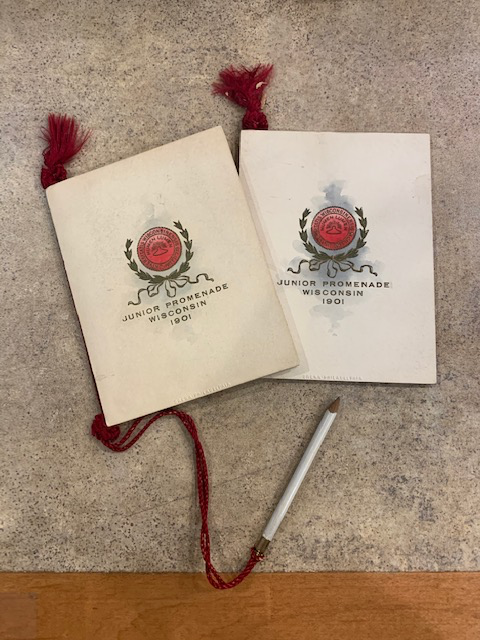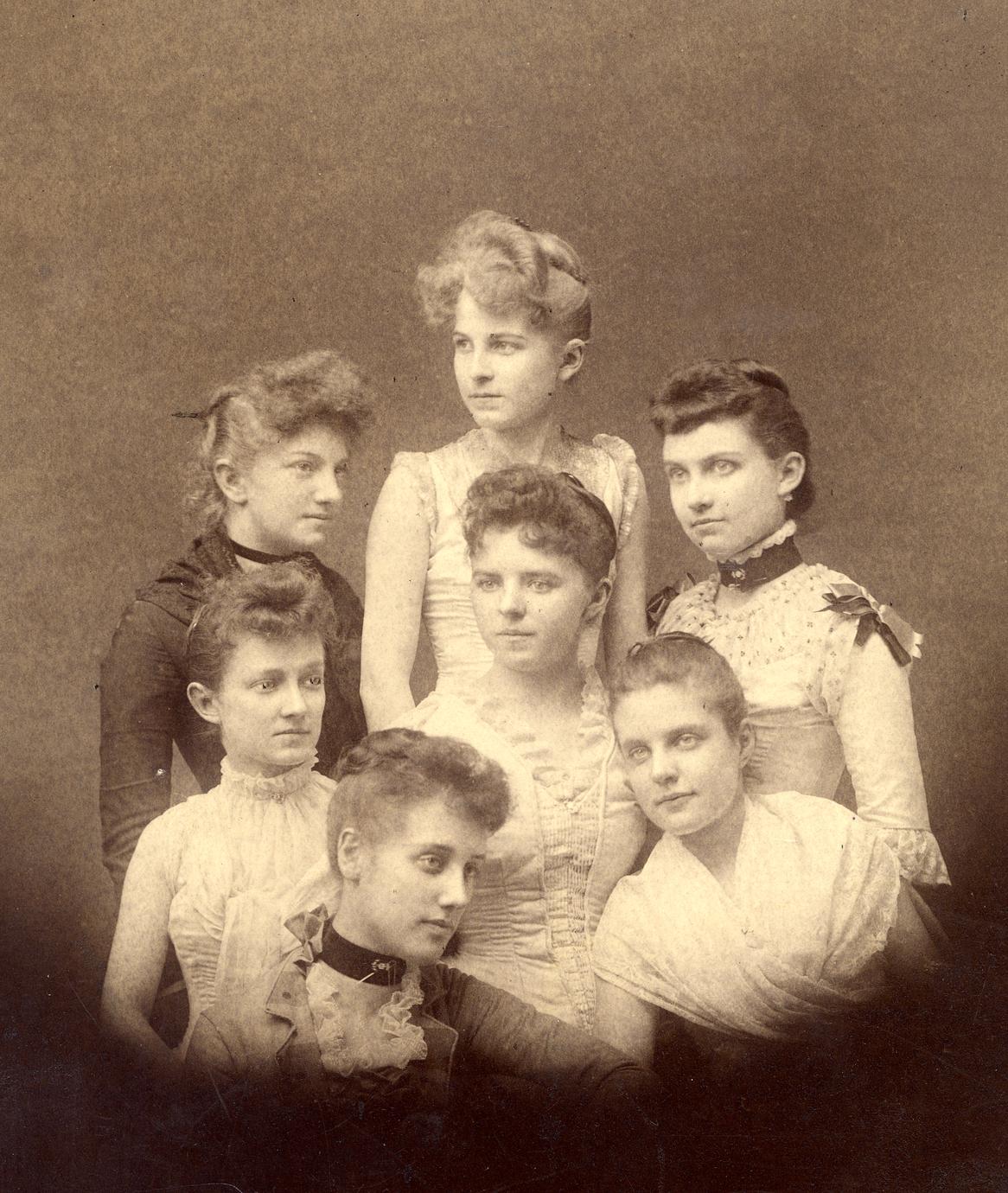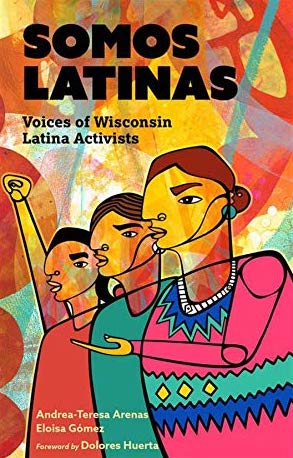Happy Women’s History Month from the Public History Project! This month's newsletter celebrates women at UW-Madison and includes links to project research, information on women’s history projects, a Prom-related archival find, new book and movie recommendations, and more!
The University of Wisconsin-Madison’s Public History Project is a multi-year effort to uncover and give voice to those who experienced, challenged, and overcame prejudice on campus. As always, if you have a story to share, an event you think should be researched, or a person you think has been overlooked, please email us at publichistoryproject@wisc.edu.
|
|
|
|
|
|
Did you miss our blog post recognizing International Holocaust Remembrance Day in January? We highlighted the story of UW-Madison alum Adela Kalvary Own. Adela Kalvary Owen arrived at UW–Madison in the summer of 1950. After having survived the horrors of the Holocaust, Adela, with her guiding motto “Seize the Day,” decided to do just that. She had seen and experienced more than many of her peers could imagine. But once Adela arrived at the Groves Housing Cooperative, in her own words, she “had come home.” You can read her story here.
Don’t forget to explore our other posts here.
|
|
|
|
Meet one of the Project’s History Corp members - Adriana Arthur!
Adriana (she/her), is a second-year graduate student in the Afro-American Studies MA program. She is from Fort Wayne, Indiana, and completed her BA in Sociology with a minor in African-American studies at Ball State University in Muncie, Indiana. Adriana is currently researching Black women students' experiences in higher education in the intersections of the pandemic and current anti-black violence. She is interested in how Black women negotiate their existence in academia and how they pursue wellness, healing, and joy in the midst. Adriana has spent her time with the Public History Project conducting oral history interviews with Black students at UW and aiding in the exhibit curation. Adriana is excited for the UW and Madison community to engage and reckon with the exhibits showcase of student activism & resistance both in UW’s history and in the present moment.
|
|
|
|
This month we are featuring another interesting archival find. Did you know that the UW Archives has a memorabilia collection? It has all kinds of treasures - playbills, flyers, ticket stubs, and so much more. That collection is where we started seeing dance cards like this one from 1901. Dances were popular on campus and prom was one of the biggest social events of the year. These events were highly segregated. Students of color and Jewish students were not invited to attend. The white women in attendance would carry around dance cards, usually with a small pencil attached, where they could track the names of those they danced with. Over time the dance cards got more creative and often matched the theme of the event. We even found one shaped like a sword for the annual Military Ball. Thanks to our friends in the Archives for keeping these preserved!
|

|
Dance cards from the 1901 Prom. UW Archives
|
|
|
|
Want to learn more about some “legendary” women of color this Women’s History Month? Look no further! “Legendary” is a collection of hand-illustrated cards featuring women of color who were pioneers in the historically white-and male-dominated fields of science, technology, engineering, and mathematics (STEM). Thanks to a UW-Madison partnership with Represented Collective, a Madison & Houston based media company that aims to increase inclusivity and accessibility in STEM, the stories of 56 women were researched and elevated, raising awareness not only of their individual contributions, but of the racism and bias that has kept many women’s accomplishments out of the limelight over the centuries. Along with the 56-card series, most of the “Legendary” portraits, along with accompanying biographies, will be on display at nine Dane County libraries for a limited time, now through April 9.
Shout out to our friends at the Humanities Education for Anti-Racism Literacy in the Sciences and Medicine (HEAL) Project for making this happen!
|
|
|
|

|
Unfortunately, we don't have a group photo of the first six women to graduate. The above photo is from 1888, almost 20 years after the first cohort of women graduated. From left: Ella Gernon, Mabel Bushnell, Mary Forbes, Sophia Clawson, Amy Stevens, Fanny Bunn, Cassandra Updegraff. UW Archives.
|
We get asked a lot of questions. Each month we’ll answer one in the newsletter. This month, we were asked: Who was the first woman to graduate from the University?
The answer: It’s not one woman, but six!
In 1869, Clara Bewick, Anna Headen, Jane Nagle, Helen Noble, Elizabeth Spencer, and Ella Ursula Turner were the first six women to graduate from the UW-Madison. Then-President Paul Chadbourne did not believe women should receive the same degree as men. He stated, “Never will I be guilty of the absurdity of calling young women bachelors.” The Board of Regents ultimately disagreed with President Chadbourne and awarded these six women with a bachelor’s degree in 1869.
Got a question? Email us uwpublichistoryproject@wisc.edu.
|
|
|
|
Each month, we want to share one of the many (many… many… ) books the Project has used for our research. This month, we highlight the work of local oral historian Andrea-Teresa Arenas, Somos Latinas: Voices of Wisconsin Latina Activists. Somos Latinas shares the powerful narratives of 25 activists—from outspoken demonstrators to collaborative community-builders to determined individuals working for change behind the scenes—providing proof of the long-standing legacy of Latina activism throughout Wisconsin. Somos Latinas draws on activist interviews conducted as part of the S omos Latinas Digital History Project, housed at the Wisconsin Historical Society, and looks deep into the life and passion of each woman. Though Latinas have a rich history of community activism in the state and throughout the country, their stories often go uncelebrated. Somos Latinas is essential reading for scholars, historians, activists, and anyone curious about how everyday citizens can effect change in their communities.
|

|
|
|
|
Each month the Project's Director, Kacie Lucchini Butcher will share a book, podcast, movie, quote, or something else she think has been adding to the PHP. We're calling it "From The Desk of KLB"
This month From The Desk of KLB - A movie. What Happened, Miss Simone? Available on Netflix. Using never-before-heard recordings, rare archival footage and her best-known songs, this is the story of legendary singer and activist Nina Simone.
|
|
|
|
As always, if you have a story to share, an event you think should be researched, or a person you think has been overlooked, please email us at publichistoryproject@wisc.edu.
|
|
|
|
|